Previously : Samurai Warrior
D. Warlord
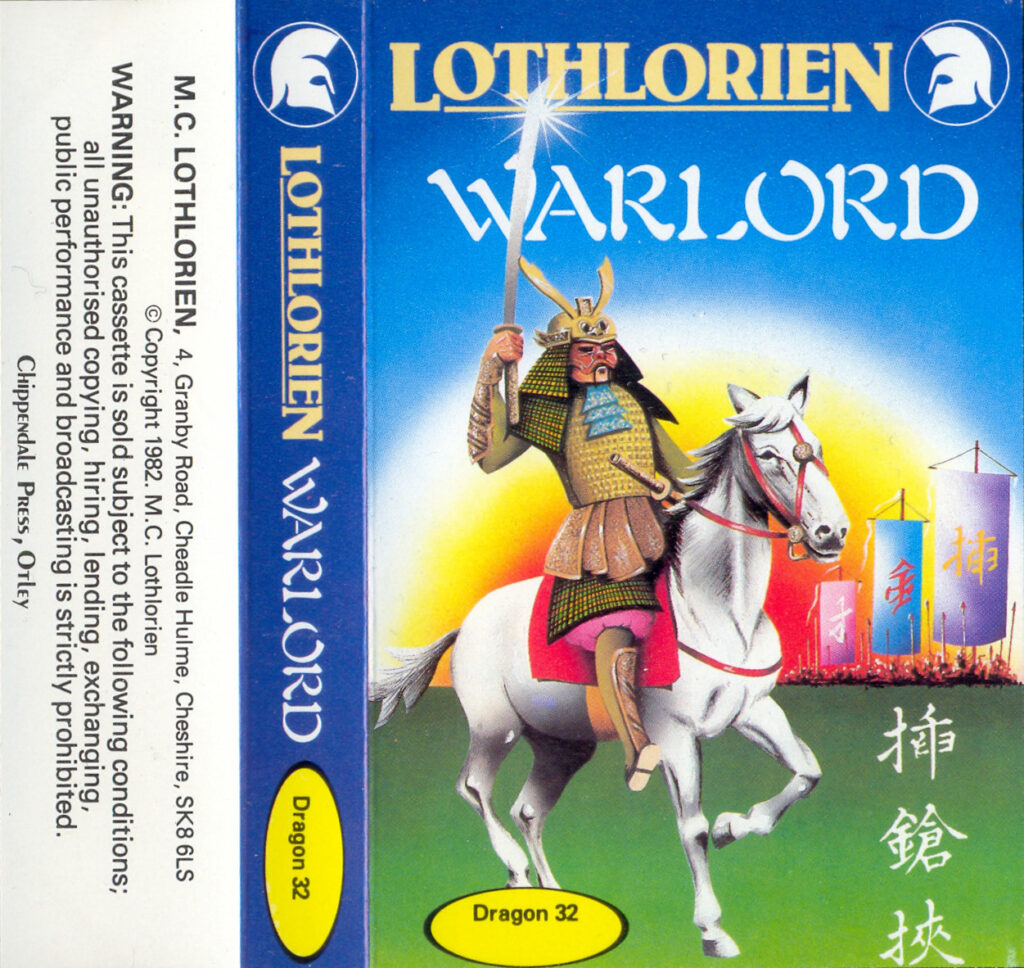
In Warlord, Roger Lees seems to have merged Samurai Warrior with Tyrant of Athens, and made some additions that turned it into the best game of this (sorry) lot. The influence of Tyrant of Athens is obvious when checking the status screen :
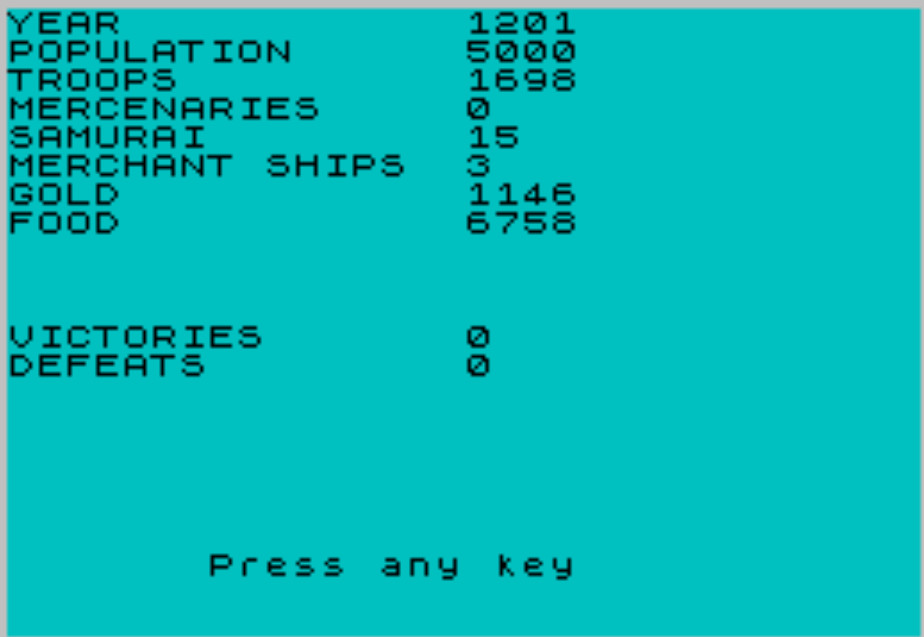
Just like in Tyrant of Athens, the player’s village is split between :
- Population,
- Troops, a part of population that does not produce food,
AlliesMercenaries, soldiers who don’t consume food but don’t fight as well as regular soldiers, but every year half of them can becomecitizensregular troops. Unlike Tyrant of Athens’ allies, they also cost a yearly 1 mon each in maintenance.WarshipsSamurais, the only way to fight otherwarshipssamurais – though they have their own specials rules too,- Food, which can be imported or exported. Transports can be intercepted by pirates,
Still, the game is way more than a theme-swapped version of Tyrant of Athens. One particularly positive change is that instead of attacking you with a random number of troops, your opponents have a reserve of men and samurais that goes up or down over time. Sometimes they attack you, and sometimes you get to choose who you attack.

Your objective is to defeat all their armies and all their samurais ; if you only defeat their armies then the game is a draw.
The player has a bit more agency than Tyrant of Athens. The player can recruit mercenaries directly, raid for food, gold or slaves, and even attack pirates (very difficult, but better loot and less chance to have your import or export intercepted in the future),
The game fails on two fronts though :
- At least in the version I am playing, all actions have their own dedicated non-skippable animations, that last one minute minimum and are not interactive. Each of them is fun the first time, tedious the second time already.
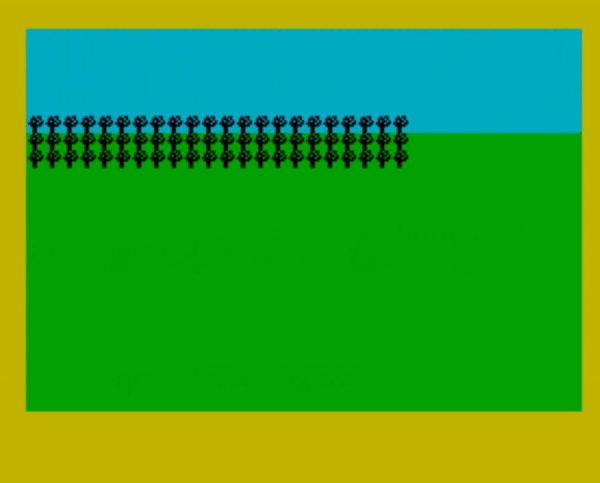
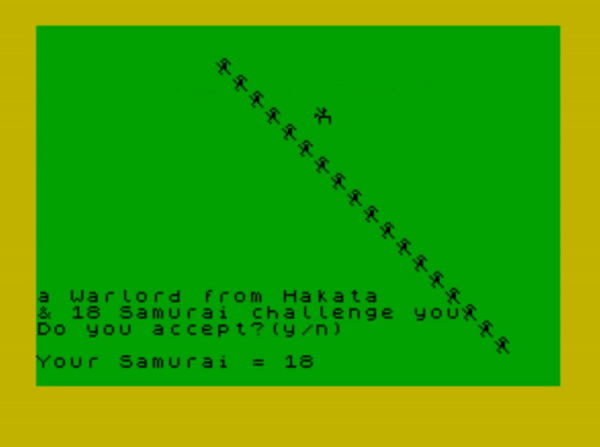
- The food economy is so strict it is not fun any more. Land is divided in 3 levels of quality :
- grade A land feeds 1.5 population by worker,
- grade B land feeds 1 population by worker,
- grade C land feeds 0.7 population by worker,
The distribution of the land between the different grades is randomized every turn, but I never had more than 1700 grade A lands, and rarely more than 1300. This means that you can feed maybe 800 soldiers, and the rest of your provisions needs to be acquired through raids (average chance of success), or imported (almost always intercepted by pirates).

I lost pretty much every time due to food issues, even when trying to keep my army size low.
Final assessment : Huge progress compared to the earlier games, but still not a wargame, and still totally obsolete.
Warlord is another game for which I have a hard time finding reviews, except in Crash‘s 1984 retrospective on all Spectrum video game : “Average fun“.
E. Peloponnesian War
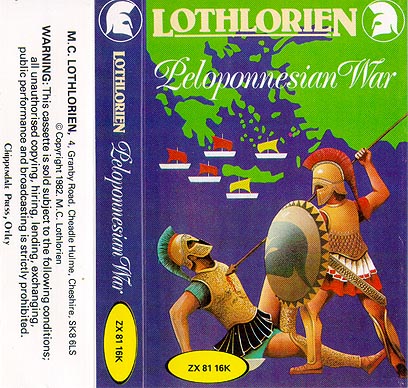
The last title for 1982 is not the best game, but it is certainly the most original and interesting of this lot.
In Peloponnesian War, you play again as Athens, and you must defeat, obviously, Sparta.
The game offers no real option between turns :
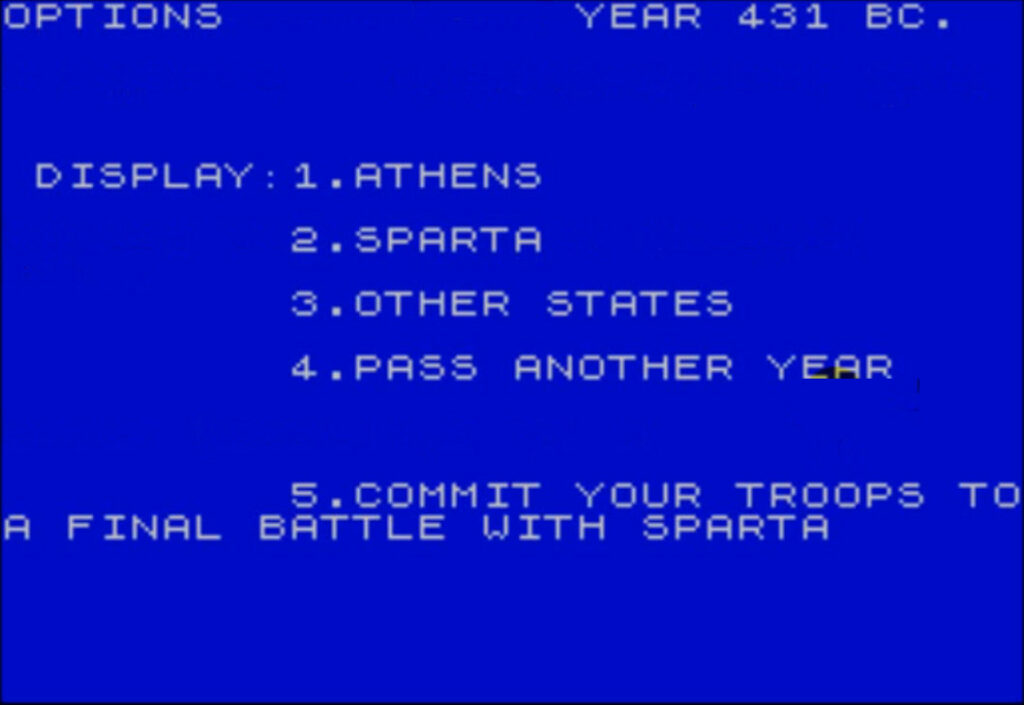
The best you can do is inspect your military situation, and the one of your rival :
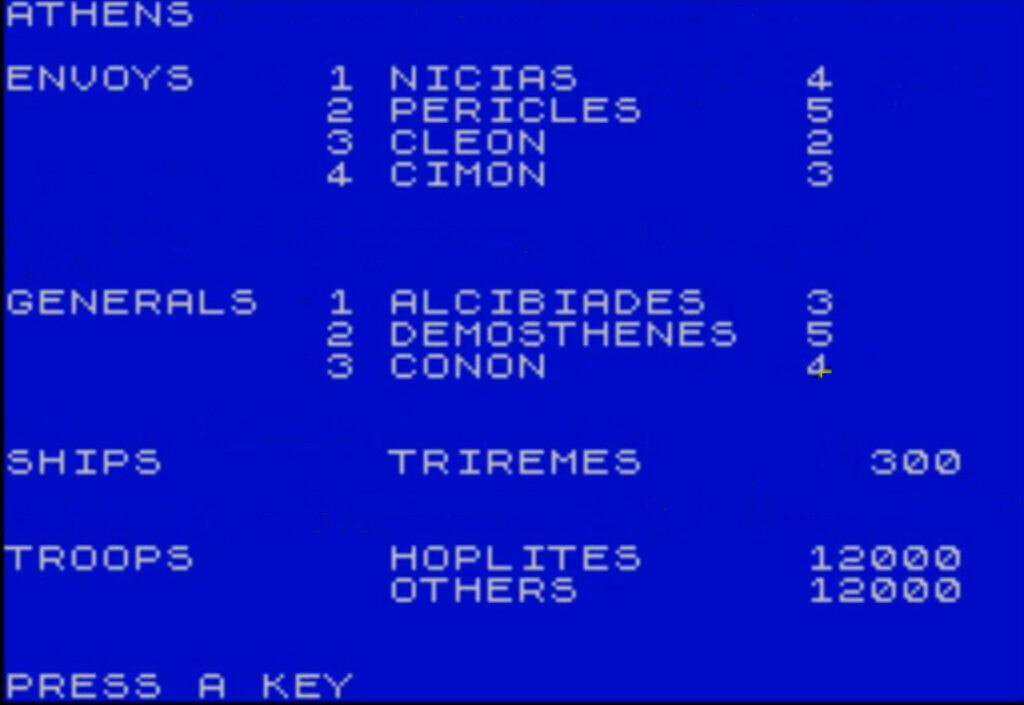
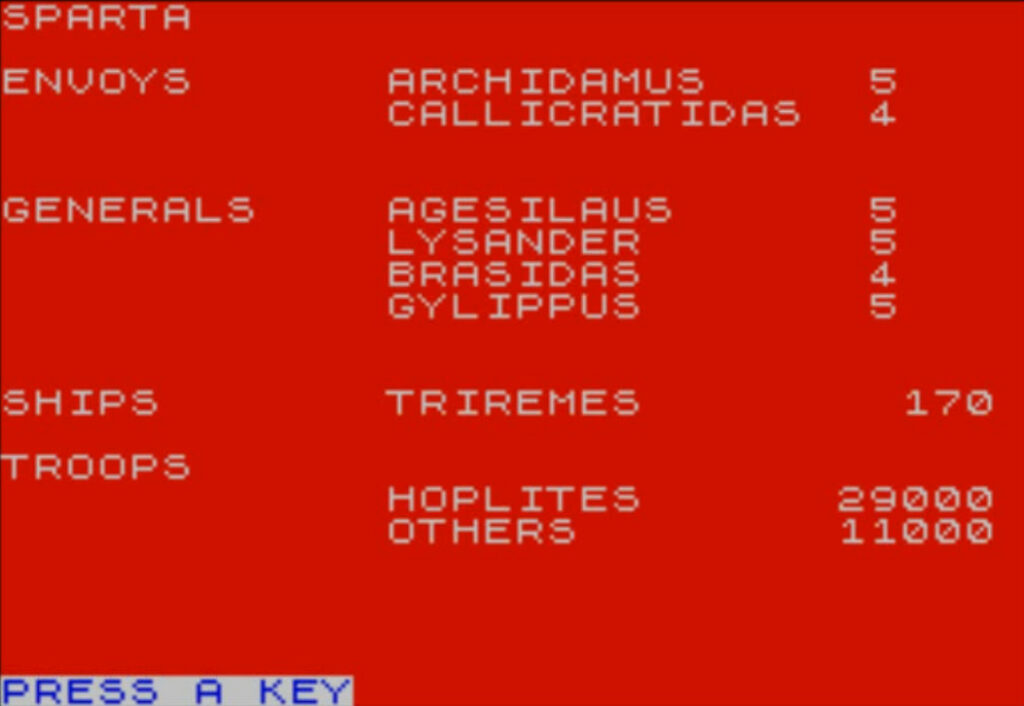
Athens always has more ships, but Sparta has more hoplites, and better commanders. The final battle is decided on the ground, so it is not looking good for the beacon of democracy.
Every turn, Sparta tries to convince or force another city to join its side, either by sending an envoy, or by sending a fleet or an army. The player can then react by either sending one of their own envoys, or an army/fleet of their own.
- If both side send envoys, then the city can join either alliance, or none, though of course the skill of the envoys is taken into account,
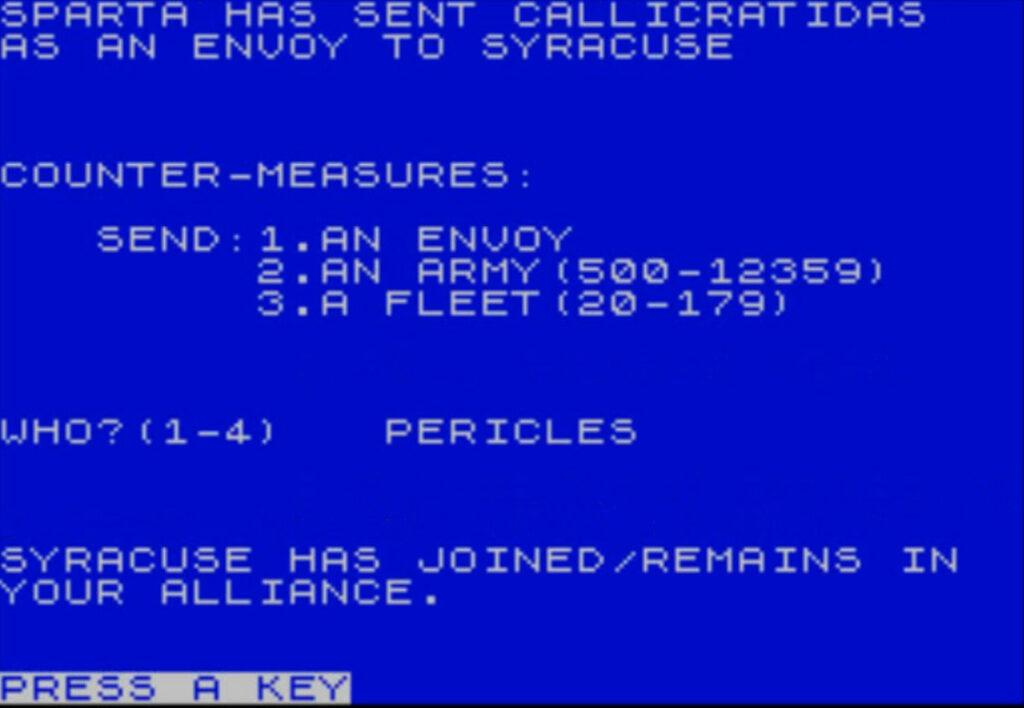
- If one side sends an envoy and the other sends an army/fleet, then the disputed city army/fleet will join the side that sent the envoy, and fight the army/fleet. If it wins, it will join the side who sent the envoy, else the side who won,
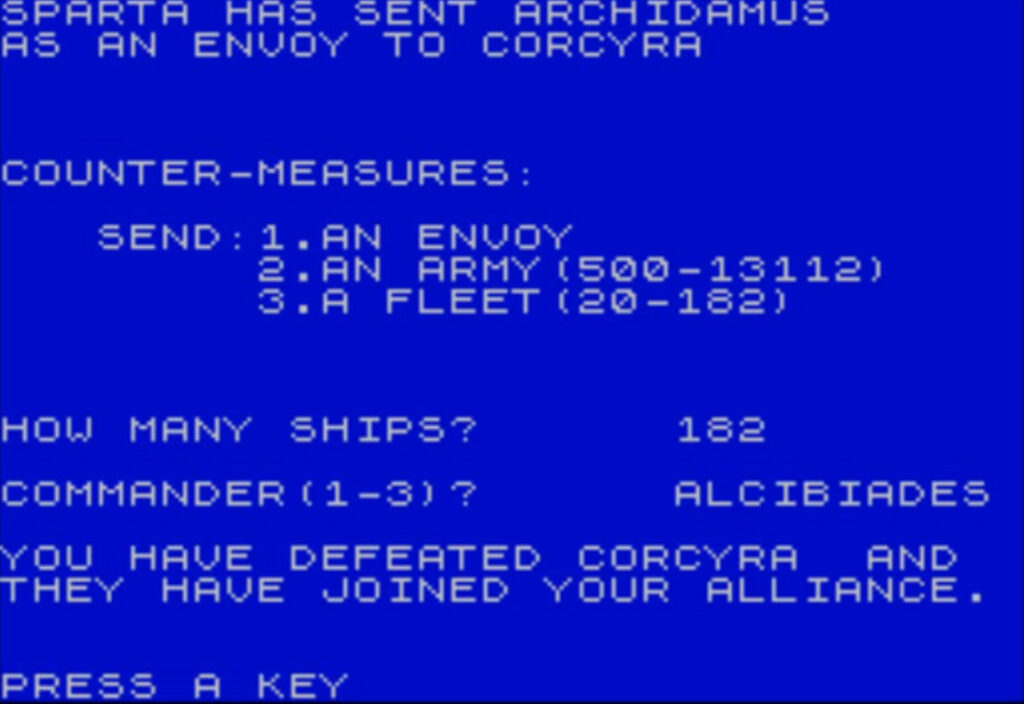
- Finally, if both sides send an army or a fleet, then a neutral city will almost always join Athens, while a city that already picked a side will obviously join that side. Then there will be a battle, and the winner keeps the city.
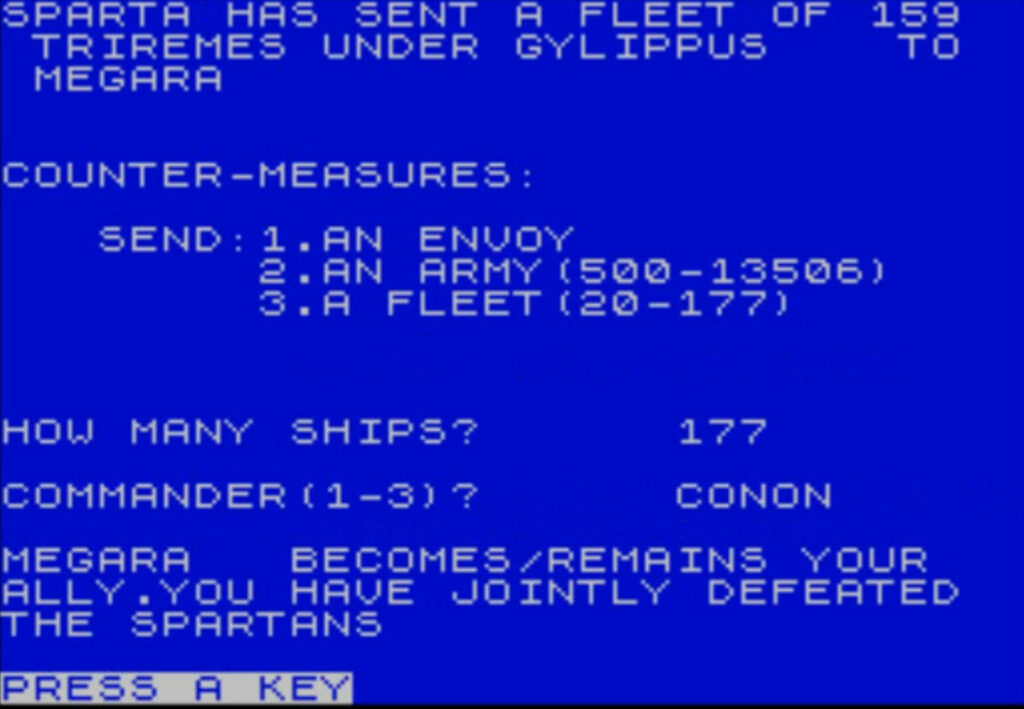
The “challenges” are always at Sparta’s initiative, so Athens has the immense advantage of being able to adapt its reaction to whatever Sparta sends. But every time a general or an envoy is used, he loses 1 in skill. With a much smaller pool of generals, Athens will eventually lose battles as its generals become worse and worse if the game lingers on.
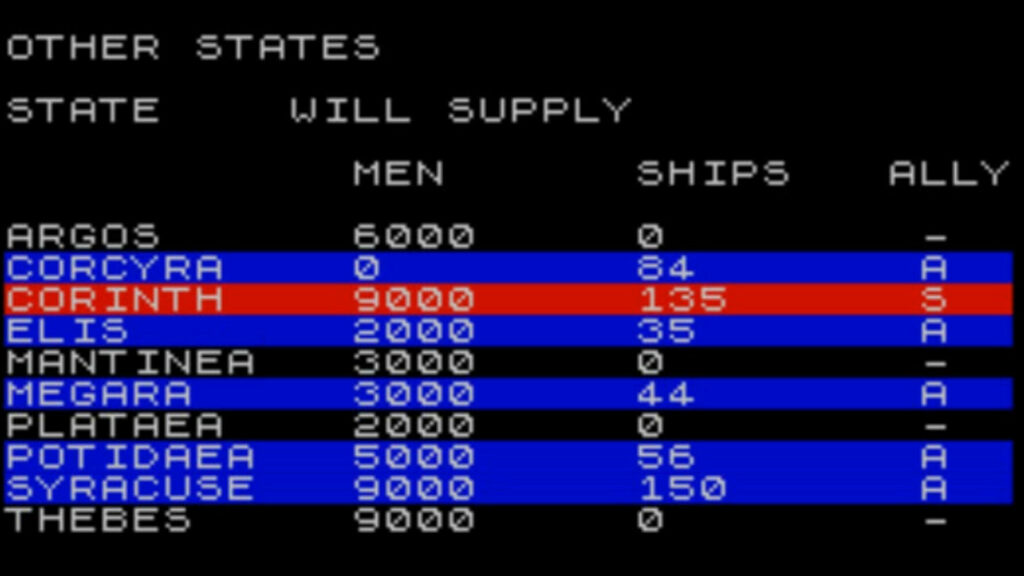
At some point, either Sparta or Athens will launch the final battle. In that final showdown, ships are irrelevant, so Athens is going to rely on its allies to make up for the difference in land power. Of course, Sparta will bring its own allies.
Well, that’s the theory. In practice, in that final battle, you don’t care that much whether the rest of Greece likes you, because there is a trick. You start with a large number of hoplites, and then you have to distribute the rest of your troops between peltasts (light infantry), archers and cavalry. It turns out that cavalry counters archers, archers counter hoplites, and peltasts… I am not sure. I think they are just targets. Anyway, just load up on archers, because Sparta has a lot of hoplites.
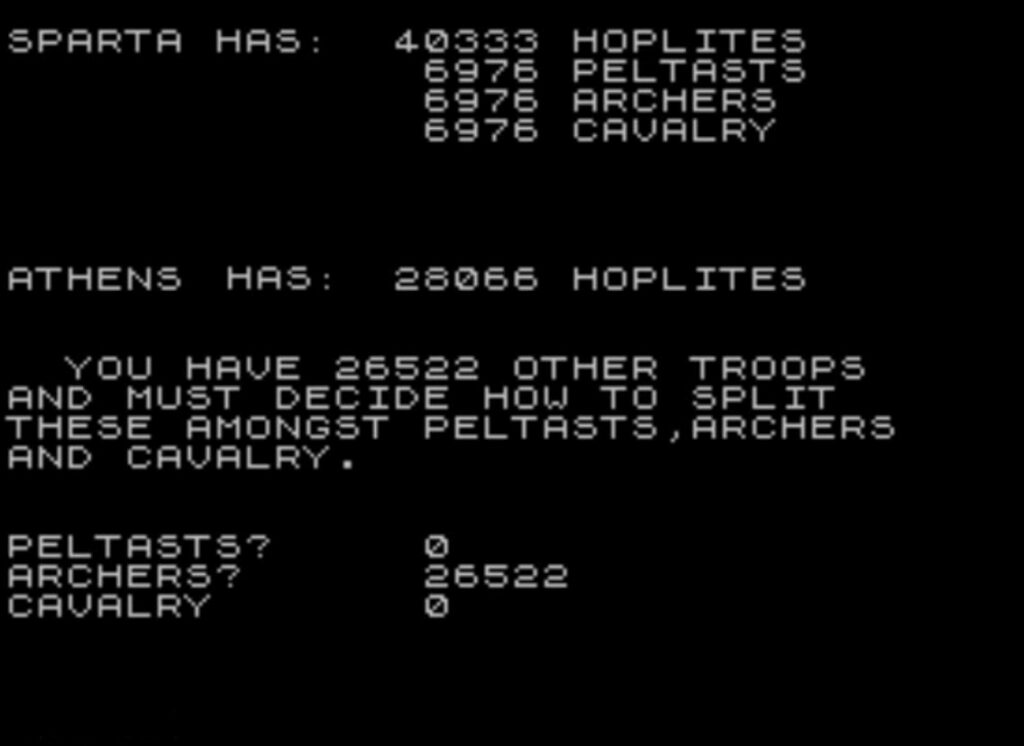
The final battle shows all your units as small icons, which disappear as they get killed :
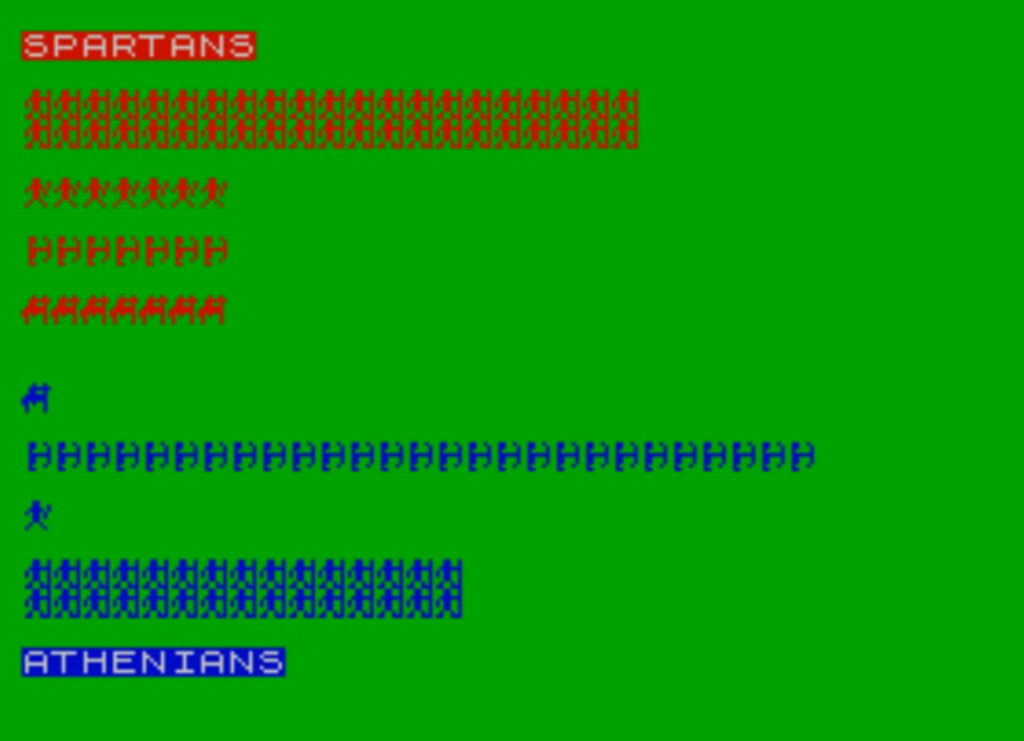
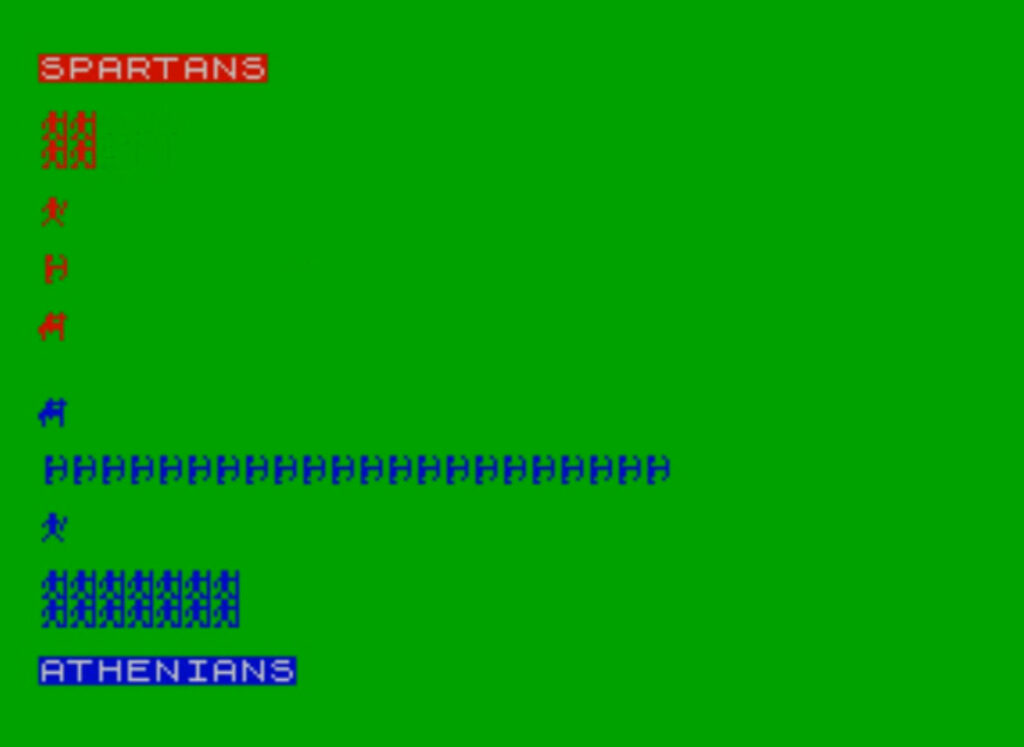
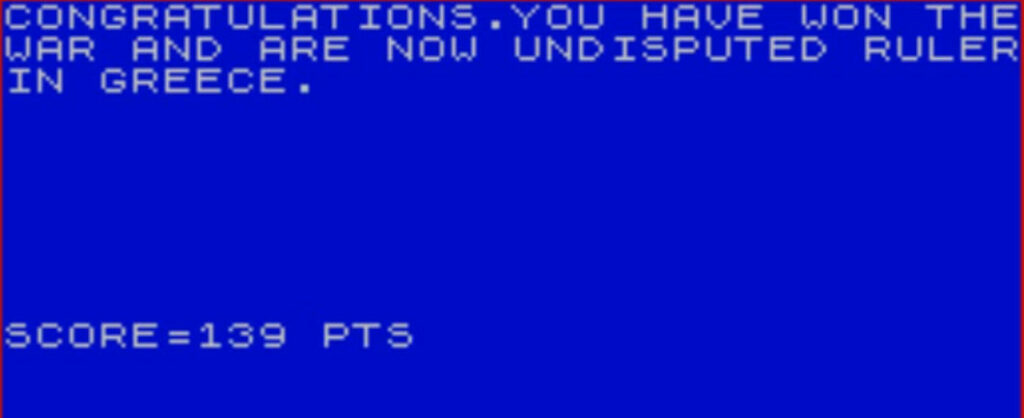
Final assessment : I love the concept of recruiting allies by reacting to Spartan moves (strong Balance of Power vibes), but the game is still too basic to be of any interest. Totally obsolete.
In term of review, the game flew totally below radar, with only a description in Sinclair User (December 1982). Even Crash did not cover it in its retrospective of Spectrum games.
That’s all for M.C. Lothlorien 1982 games – same theme as wargames, wargame-adjacent, but not wargames yet. This will change in 1983, with the game that made M.C. Lothlorien famous : Johnny Reb, but also games like Confrontation and Dreadnoughts.
9 Comments
Fantastic stuff. Enjoying these. I quite liked Peloponessian War but it’s a very old game. There was a boardgame by Avalon Hill that could be played solitaire. Apparently if you did well there was a chance that the game would make you change sides!
Love these cassette games. Totally, obviously, 100% obsolete, many on the day they were made. And yet I enjoy hearing about them and someone actually taking the time to take them seriously and play through. Fascinating artifacts from a forgotten era.
Though if I may make a suggestion – space them out a bit more. Three entries in three days is a bit fast for a blog like this that I don’t check every day. 🙂 Let ’em stay on the front page for a while and rack up hits before moving on to the next one.
> Three entries in three days is a bit fast for a blog like this that I don’t check every day.
Personally I use a RSS reader in my browser (with the feedbro add on) to get notification for new posts on the blogs I’m following. Saves me from having to check every day/every few days.
I use Reeder. I’d hate to be without some sort of RSS reader these days.
Most people don’t use that. Moreover it’s nice to have a blog entry to chew on and comment to. When they go too fast, you don’t get that.
Thanks for the suggestion. I initially wanted to do only one article for the 5 games, but then it was too long. On the other hand, I did not feel like having people wait for non-wargames, so I ended up choosing to split them over several consecutive days.
I use an RSS reader as well, so it’s fine.
Ah yes, I too get worse at something every time I attempt it. That totally makes sense ..
Well, maybe you care less and less about your job as you are asked to do the same thing again and again. Definitely happened to Alcibiades, until he went into “negative” skill :).